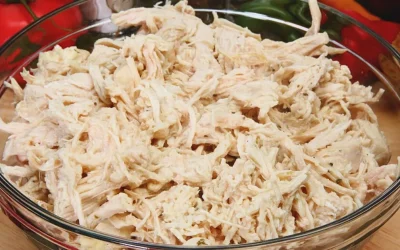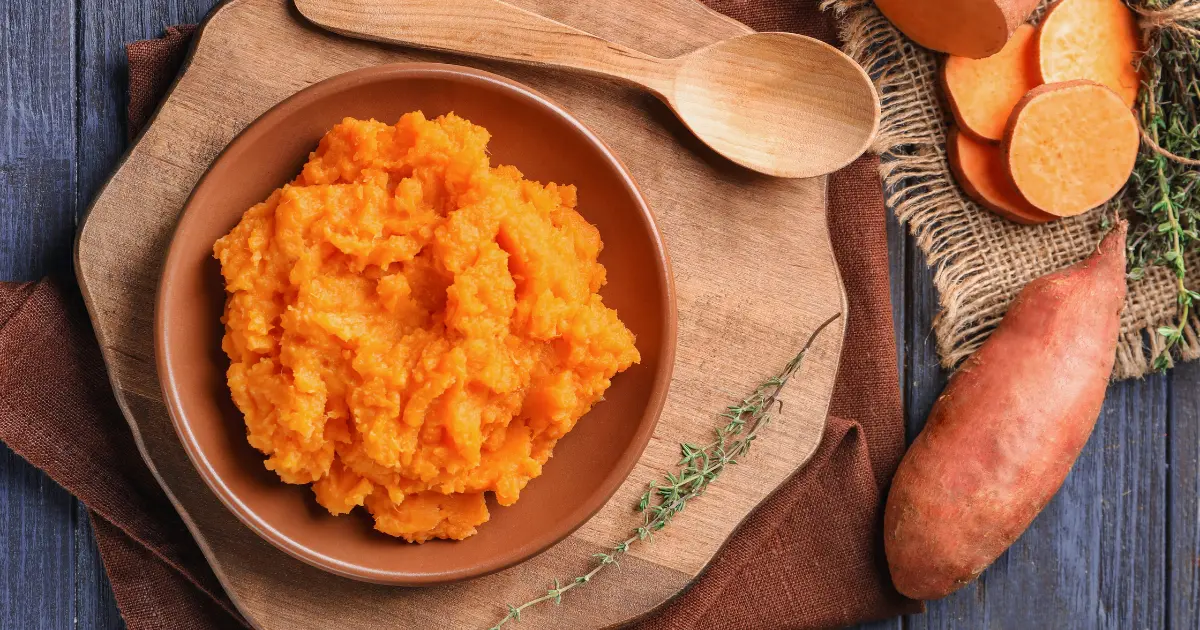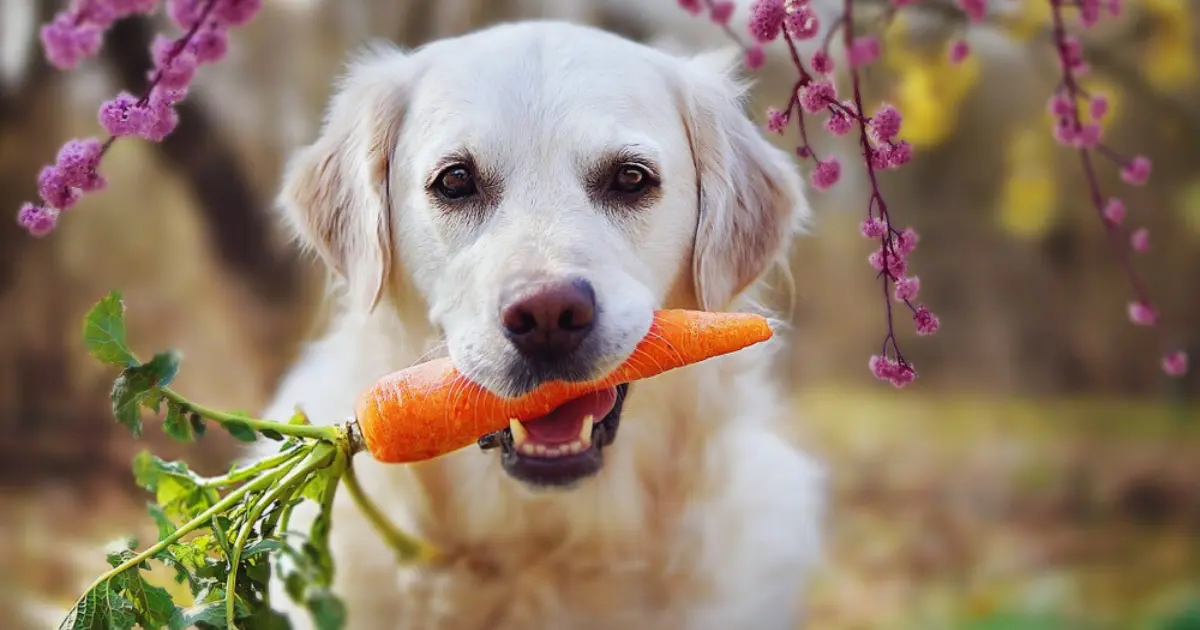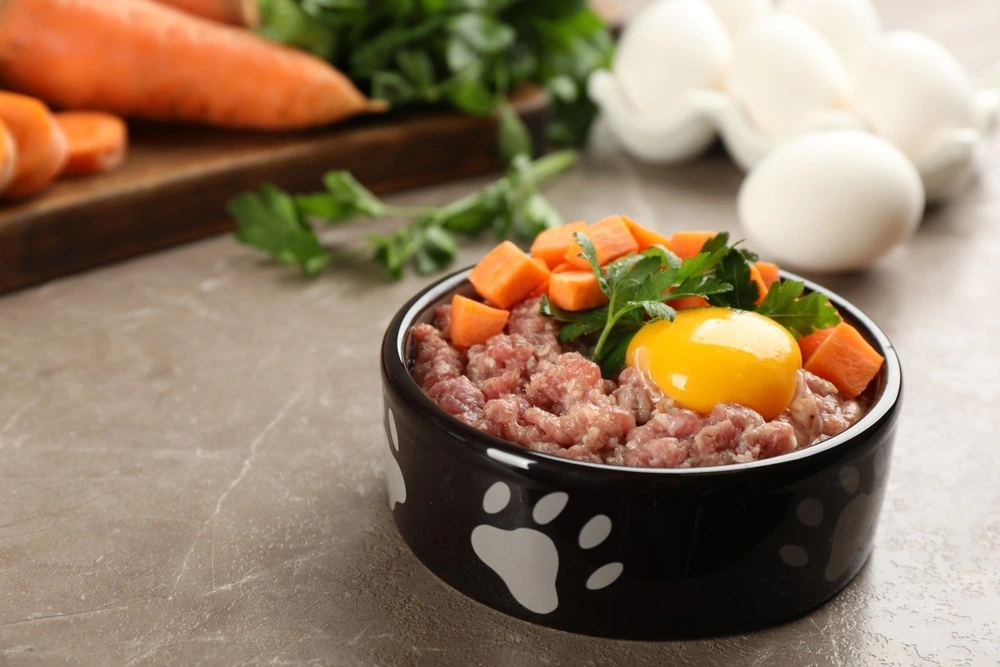How to Make Homemade Puppy Food
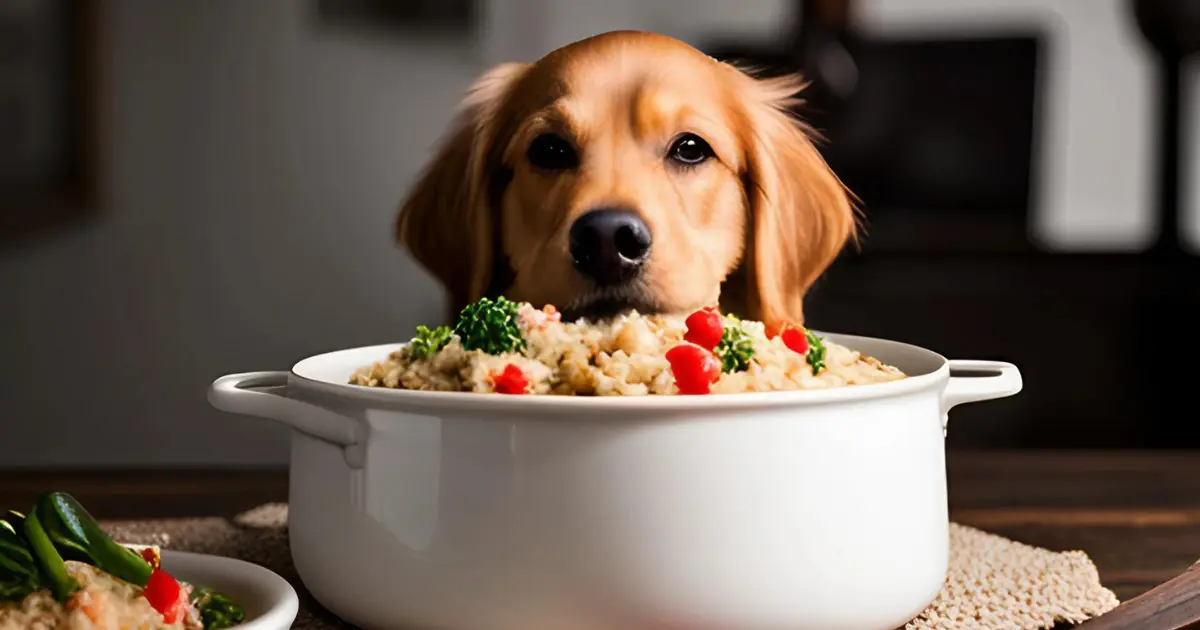
All growing puppies require a healthy diet. However, selecting the best nutrition for your puppy can be daunting. Moreover, homemade puppy food can save you money and allow you to customize your puppy’s diet according to their needs.
Home-cooked food is just so wonderful and delectable for your puppy! However, it requires some dedication from you. Make sure you have enough time to prepare the food regularly and correctly.
Why Make Puppy Food at Home?
There can be many reasons, but some significant reasons might be that recalls have caused you to lose faith in pet food manufacturers. Or the health or energy level of your dog needs to be better. Perhaps you can’t get it right by using manufactured goods for sale. Or maybe you have a natural desire to give something new.
If you are moving to homemade dog food, ensure you have the time and energy necessary to maintain a professional and consistent approach. Your puppy may experience a nutritional shortage if it does not receive the required care and attention, which could hamper its growth and development.
Is Homemade Food Healthy for Puppies?
It can be healthy to provide them with homemade food if the puppy’s diet is nutritious and meets all its nutritional requirements. Before beginning a homemade diet, it is important to consult with a veterinarian. A veterinarian can help ensure that the diet is complete and balanced and offer guidance on the right portion amounts for the puppy.
Moreover, homemade food may only include essential elements in commercial puppy food.
Preparing a healthy and complete diet containing all the nutritional ingredients can be challenging, and it will require some knowledge of meal planning, canine nutrition, and food handling techniques. To ensure the finest growth and development, they needed a specific blend of nutrients, such as protein, fat, and calcium. If you need proper knowledge, seek advice from a veterinarian or expert canine nutritionist or provide commercial puppy food.
Guidelines for Making Puppy Food at Home
You can follow these basic guidelines for proportions but be sure to consult your veterinarian or nutritionist throughout the process.
1. Sources of protein (40–80%)
To feed your four-legged friend, choose boneless chicken, turkey, lamb, beef, hog, or duck.includes boneless fish, especially nutrient-dense salmon, and shell eggs for added calcium. Organ meats are high in nutrients, but if you want your pet to be healthy, their diet shouldn’t include more than 15% organic meat.
2. Fruits and vegetables (5%–10%)
Include a variety of fruit and vegetable groups in their diet, such as tasty carrots, nutrient-dense peas, antioxidant-rich blueberries, and other veggies that are good for dogs. Exercise cautiou while purchasing produce that is harmful to dogs.
3. High-fiber carbohydrates (20–60%)
Add russet potatoes, jasmine or white rice, peas, beans, lentils, oats, sweet and regular potatoes, and other high-fiber carbs. Maintaining a balanced combination ensures the puppy wags its tail and feels soothed.
4. Healthful Fats (5–15%)
To improve their cooking experience, use healthy fats such as rendered poultry fat, safflower oil, canola oil, or soybean oil together with a tiny bit of milled flaxseed or flaxseed oil.
5. Vital Vitamins and Minerals
Regarding essential vitamins and minerals, heed the advice of your veterinarian. A calcium-rich puppy food supplement that, depending on the veterinarian’s evaluation, can help you maintain your puppy’s general health and wellness.
6. Additional Options
Give your four-legged friend a tablespoon of your favorite broth, canned fish stock, or leftover chicken soup. Look at his tail, waving gratefully. Add some probiotics to boost immunity or parsley to freshen your breath.
As your loyal companion ages, use supplements such as glucosamine to maintain strong joints and to ensure many more years of companionship and vigor.
Read Next: How to Cook Sweet Potatoes for Dogs
3 Basic Homemade Recipes for Puppies
Three healthy homemade recipes for puppies you can try –
1. Chicken and Brown Rice Puppy Food
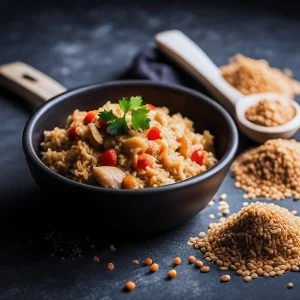
Ingredients
- 1 pound chicken breasts, boneless and skinless
- Two diced sweet potatoes skinless and half a cup of uncooked brown rice.
- Two sliced carrots and 8 ounces of frozen peas 15-ounce tomato (about 443.6 ml), diced
- One-quarter cup of fish oil
- One-half teaspoon of iodized salt
- One teaspoon of dehydrated parsley
- One-and-a-half cups water
Directions:
- Set your slow cooker to low
- Add all the ingredients
- Cook for 5-6 hours
2. Healthy Puppy Foods
Ingredients:
- 3 lbs. of ground turkey
- 1 cup millet, quinoa, rice, or pasta, whole and uncooked
- 1 tablespoon olive oil ¼ cup dry coconut flakes or coconut oil
- 1 shredded carrot
- One zucchini, shredded
- ½ cup pumpkin juice (from a can or your own kitchen)
- One shredded squash
- 1 apple, cut up
- A tablespoon of calcium powder
Directions:
- Boil 1 cup of whole grains in a pot of water. I overcook it so it’s soft and easy to digest. Drainage.
- While that’s boiling, shred/chop the veggies.
- Cook ground turkey in olive oil and drain the juices.
- Mix everything! No need to cook the veggies. Cooked turkey and whole grains can help them feel a little warmer.
- Store in Tupperware or zip-lock bags and freeze.
3. Turkey and Chicken Casserole
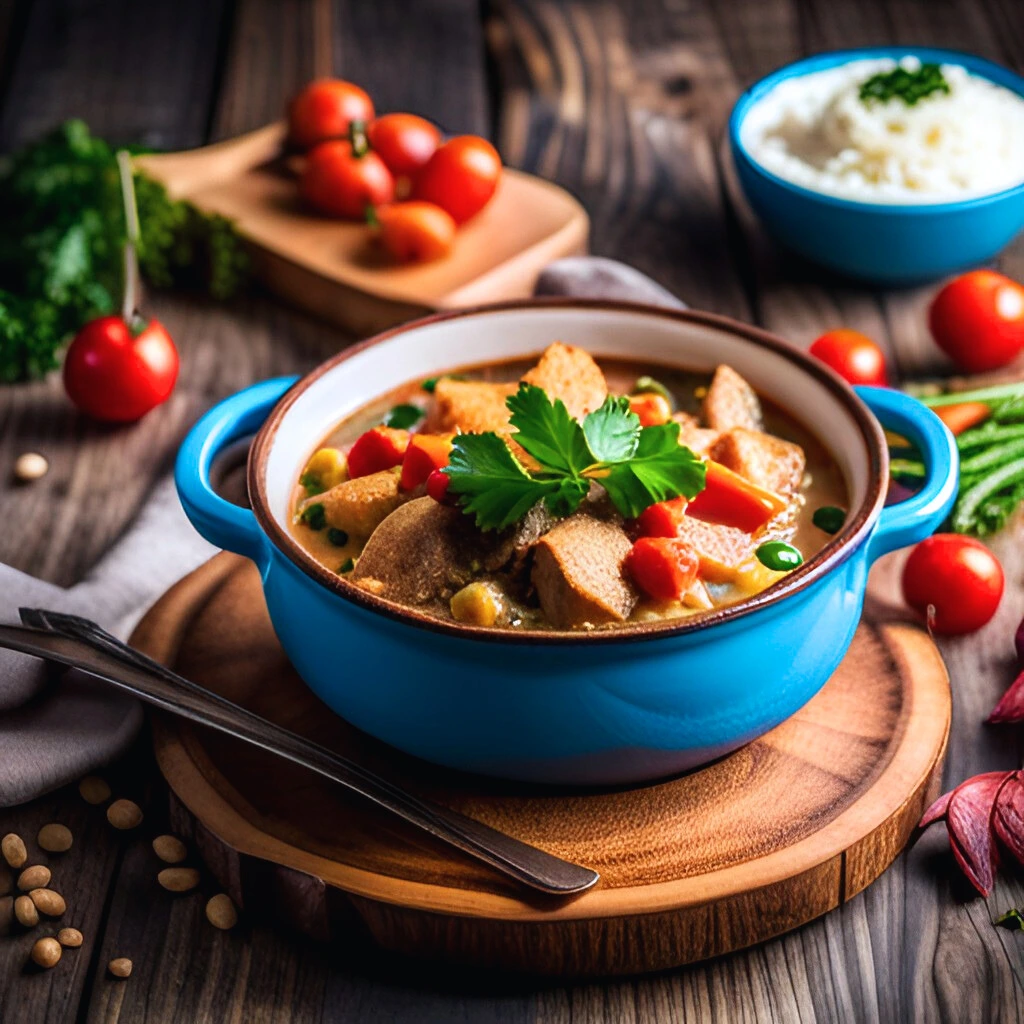
Ingredients:
- Two lbs. of chicken breasts without skin or bones
- 25 lbs. of turkey meat
- 1 cup of rice
- Two sliced carrots
- Two peeled apples
- Peas
Directions:
- Combine all ingredients and add water to the slow cooker.
- Cover the slow cooker. Cook on low heat, and leave it in place for 8 to 9 hours.
- Turn off the heat and stir.
- Allow cooling. Then, mash slightly before serving.
Cooked vs. Raw Diets for Puppies

There is no doubt that homemade cooked foods are healthy for Puppies. However, there is a controversy over raw food for dogs. Some specialists warn of the risks of dangerous pathogens in raw pet food. Some other specialists see the potential benefits of raw food for healthy adult dogs. However, puppies are a different matter. People and some dogs can get sick from germs that are found in raw food. Young animals, like children, cannot fight off pathogens in raw food due to their low immunity.
But if you can safely handle raw food and the risks, consult your veterinarian about transitioning to raw food when your puppy gets older. At first, you might choose to offer a combination of cooked and raw foods to see how it works out. Remember that raw diets are not recommended for dogs with immune system issues.
Homemade Puppy Food Nutrient Ratios
While each meal may vary slightly, there is a general breakdown of ingredients to consider when making homemade puppy food recipes. It is crucial to note that not all specialists have the same opinion on the precise ratio of nutrients. Keep in mind that each meal doesn’t have to be perfectly balanced; the goal is to achieve balance over a week or more. The recommended distribution of nutritional elements in your puppy’s diet is as follows: Protein 50%, Carbohydrates 40%, Fat 10%.
Which Supplements to Add to Homemade Puppy Food
Making homemade puppy food recipes can be difficult, as specialists have different opinions on the necessary supplementation, the required amounts of vitamins or minerals, and the best sources to obtain them from. It can be a confusing topic to understand!
If you are fed a balanced raw puppy diet, you may not need to add supplements since your furry friend can receive all the essential nutrients. Always remember that extreme heat can destroy food’s vitamins, minerals, enzymes, and probiotics. Here are some of the supplements that are recommended to be added to a homemade diet for puppies and dogs:
Calcium – It is an essential supplement in properly developing bones and joints in puppies. However, it can be a big challenge to provide an adequate supplement. Raw, meaty bones are the most fantastic source of easily digestible and precisely balanced calcium. It is important to emphasize that these bones should be natural and not cooked. Even if you prepare homemade meals for your puppy, you can still add raw meaty bones into their diet by offering them daily. Chickens’ wings, legs, necks, and backs are the ideal bones to feed puppies.
Fatty acids – Fatty acids are also an essential supplement for your puppy’s well-being. Fish Oil can be a great source of fatty acids to add to their homemade food because Fish Oil is high in Omega fatty acids, which play a vital role in maintaining your puppy’s health. You can add fish as a protein source in some of your puppy’s meals; it is a fantastic way to provide them with these essential oils. You can develop their diet by serving one or two small sardines each meal to ensure they get the necessary Omega-3 fatty acids.
Probiotics – Probiotics are also essential for maintaining your puppy’s digestive system and boosting his immune system. You can include plain natural yogurt with probiotics like (Lactobacillus Acidophilus) in your puppy’s homemade meals.
Avoid ingredients in Homemade Puppy Food Recipes
There are some ingredients you avoid adding to homemade puppy food because they’re either toxic to your dog or can cause digestive upset. These include:
- Onions
- Garlic
- Chives
- Avocado
- Citrus fruit
- Grapes/raisins
- Nuts
How to Handle Your Pet’s Diet
The CSU Veterinary Teaching Hospital has the following recommendations when it comes to handling our pet’s diet:
- Make sure they are eating a healthy food.
- Make sure that the food they are eating is appropriate for their age and size
- Make sure the brand of food you buy has strict quality control and has a board-certified nutritionist on staff.
- If you do choose to prepare food – make sure the diet is Consulted with a veterinary nutritionist to make sure that it suits your pet’s needs.
- If you have questions about your pet’s diet, consult your vet.
Final Thoughts
Homemade food for puppies is the best but it has some pros and cons. Always consult to your veteran and then go ahead with the diet or food because it is your duty to provide the best to your furry friend.
FAQs:
Q1: What ingredients should I put in homemade puppy food?
It is essential to include adequate amounts of vegetables, proteins, carbohydrates as well as essential vitamins and minerals in homemade puppy food recipes. Fish, poultry and turkey are all lean meats that provide useful protein. Carbohydrates are found in both brown rice and quinoa, as well as carrots, sweet potatoes, green beans or squash.
Q2: Can I use raw meat in homemade puppy food?
Vets and dog owners may not agree on raw meat. There are different opinions on whether dogs should eat raw meat because they are animals or not. Some say that processed meat is better for both people and pets. Before giving your puppy home-cooked foods that contain raw meat, talk to your vet.
Q3: Are there any foods that are toxic to puppies?
Yes, you should never make your own dog food because many foods that are good for people are bad for pups. Some of these are garlic, onions, bananas, grapes, chocolate, and macadamia nuts. Check out safe foods before you make your own dog food.
Q4: Can I freeze homemade puppy food for future use?
Yes, you can freeze some of your homemade dog food to make it easier to use and keep it fresh. Let the food totally thaw before giving it to your dog. To keep food safe and stop bacteria from growing, make sure you follow the safe handling and storage directions.
Q5: How can I ensure my homemade puppy food is nutritionally balanced?
Make sure that the dog food you make at home is full and balanced. Proteins, fats, carbs, vitamins, and minerals are all important for a dog’s health. Talk to a veterinary nutritionist about how to make a treat for your puppy that meets all of its needs.
